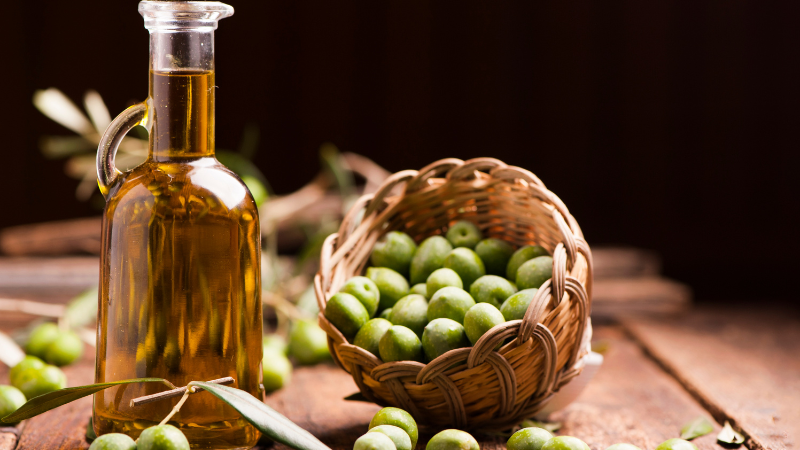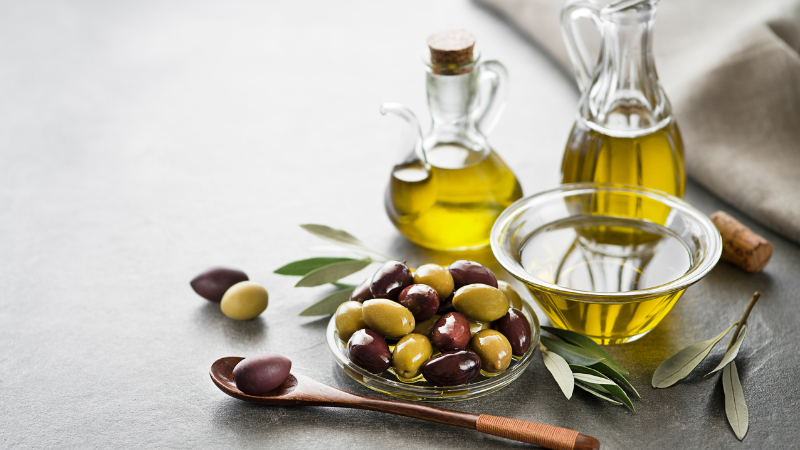How long does olive oil last?
When clearing out the cupboards in your kitchen, what do you do when you come across olive oil that you are sure has been in there for a few years? Keep it or throw it away? There is a common misconception, partly due to the similarities between marketing and presentation of wine and olive oil that many think they both last forever.
However, as you will see in the following post, most olive oil has a very definite lifespan and there are several ways you can tell if olive oil has gone bad.
Depending on the standards of the brand, the process used to produce the oil and the quality of the actual olives themselves, olive oil will generally last between two and four years. However, the way it is stored before and after you open can make all the difference between an older bottle of olive oil being tasty and rancid.
Does olive oil expire?
As olive oil is derived from olives and botanically olives are considered a fruit, they have a shelf life. Therefore, by extension, olive oil also has a shelf life. Unlike wine that can mature over time and remain consumable, olive oil will eventually reach a point when it is rotten and does not taste nice at all.
How long does unopened olive oil last?
As is the case with a lot of food and drink products, it depends as much on how you store them as it does how they are made and what the actual labelled best before the date is. An unopened bottle of olive oil as long as it is kept in a relatively dark and cold place should last at least two years.
How long does olive oil last when opened?
Once opened, olive oil can last anything between 18 and 24 months if it has been stored properly in a cool and dark place with a tight covering on it at all times.
How can you tell if your olive oil has gone bad?
So how do you tell if your olive oil is bad or good? This is perhaps easier than you may have thought. Most olive oil that has gone rancid will have a bad smell and taste. There are a wide variety of descriptions as to what rancid olive oil smells like Elmer’s glue, putty and even crayons.
Although taste is a great way to identify rancidity, it is a little trickier than smell. While some high-quality olive oils will simply have a slightly sharper, tingly and spicy flavour, others will almost sizzle on your palate, similarly to a dash of pepper that catches in your throat. The most extreme we have read about, short of just tasting wrong, is that rancid olive oil can taste similar to French fries or chips that have been left in the fryer too long, or how you might imagine that tastes.
As no clear and distinctive taste is associated with rancid olive oil, the best way to figure out if your olive oil is bad is to know how that particular olive oil should taste when it is good. So, make sure you use some when you first buy it or are gifted it and familiarise yourself with the taste. Failing that, you could try a free sample of that specific brand and type at a local olive store or gourmet foods store if there is one in the vicinity.
Is it OK to use expired olive oil?
Although rancid olive oil is unlikely to give you any serious side effects or make you ill, there are other reasons why you might want to rethink your philosophy of not wasting food when you discover that old and well past its use-by date oil. For instance, while fresh olive oil is famed for its various nutritional benefits, out of date and rancid olive oil is unlikely to offer any of those advantages, so that nice salad or pasta dish will not be as healthy as it could be.
Another downside to using bad olive oil in cooking is that just as bad wine can affect the flavour of a dish, the oil could ruin your food.
How can you extend the shelf life of olive oil?
Ideally, the best way to ensure you don’t have to deal with bad or rancid olive oil is by consuming it as soon as you possibly can after it has been harvested and bottled. However, you are probably interested in how best to store it safely, so it lasts as long as possible. It is best to keep olive oil airtight in a cool and dark place. 56-degrees Fahrenheit is the best temperature, according to experts, but anything between 56 and 70 is likely to keep your olive oil just right.
The most challenging aspect of storing olive oil is protecting against oxygen. After every single use, you need to, at the very least, close the container tightly. Although it won’t keep it airtight, it will prevent as little oxygen from getting in as possible.
How should you get rid of old or bad olive oil?
Olive oil needs to be treated the same as vegetable and other types of cooking oils. Never throw it directly into the bin or wash it down the drain. You need to instead pour it into a non-breakable, sealable container and then put it into the bin.
There are also a variety of ways you can repurpose olive oil if you do not feel good about wasting it, even if you are not intending on using it for food preparation or cooking.
Summary
So, if you have olive oil and have not used it quite as quickly as you imagined you would, as long as it is within 12 months and 2 years, it should be safe to eat. If you are not sure of its actual best-before date, you can check whether it is good by testing its smell or taste.


